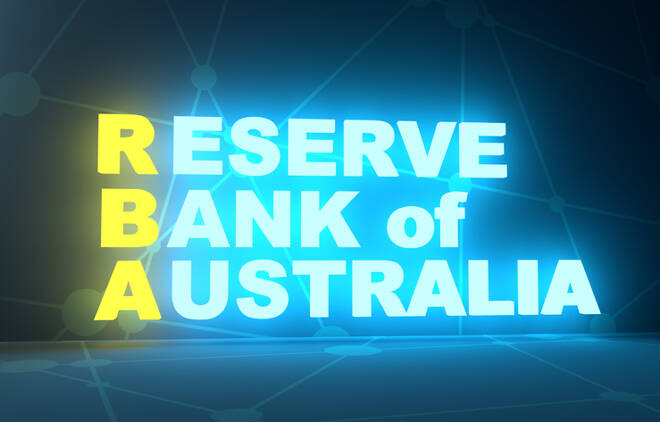Advertisement
Advertisement
RBA’s Philip Lowe: ‘Political Shocks are Turning into Economic Shocks’
By:
RBA Governor Dr. Philip Lowe finished his speech by saying ending the political uncertainty would also bring benefits. “With these three levers stuck, the challenge we face is monetary policy is carrying too much of a burden.”
It’s hard to follow-up the highly anticipated speech by Federal Reserve Chairman Jerome Powell on Friday, but the Jackson Hole central bankers’ symposium continued on Saturday afternoon with scheduled remarks from Reserve Bank of Australia Governor Philip Lowe.
In a way, Lowe reiterated a small part of Powell’s speech by saying that central bankers have limited ability to cushion the global economy from the headwinds of mounting political uncertainty.
“We are experiencing a period of major political shocks,” Lowe said Saturday at the Kansas City Fed’s retreat in Jackson Hole, Wyoming, citing developments in the U.S., Brexit, Hong Kong, Italy and elsewhere. “Political shocks are turning into economic shocks.”
Lowe also said that the public shouldn’t count on central bankers to bail them out if politicians keep turning up the heat.
“Monetary policy cannot deliver medium-term growth,” Lowe said. “We risk just pushing up asset prices.”
Lowe further added that infrastructure investment and structural reform in economies around the world would have much greater impact than cutting interest rates. But politicians are reluctant to act, he said.
He finished his speech by saying ending the political uncertainty would also bring benefits. “With these three levers stuck, the challenge we face is monetary policy is carrying too much of a burden.”
Lowe and Powell on Same Page About Monetary Policy Limits
Powell said in his speech, “Geopolitical events have been much in the news, including the growing possibility of a hard Brexit, rising tensions in Hong Kong, and the dissolution of the Italian government…Long term bond rates around the world have moved down sharply to near post-crisis lows.”
Powell also talked about the challenges of supporting maximum employment and price stability in the wake of a volatile trade policy and the limits of monetary policy.
“But fitting trade policy uncertainty into this framework is a new challenge,” Powell said. “There are… no recent precedents to guide any policy response to the current situation. Moreover, while monetary policy is a powerful tool that works to support consumer spending, business investment, and public confidence, it cannot provide a settled rulebook for international trade
“We can, however, try to look through what may be passing events, focus on how trade developments are affecting the outlook, and adjust policy to promote our objectives,” he added.
Not First Time Lowe Called Government Help
In early July, Dr. Lowe said two interest rate cuts in as many months should put the economy on a “better path” but he also called on the government to pull its weight. Lowe said monetary policy had a significant role to play in hitting its inflation goal but he again called on government to lend a hand by loosening its purse strings.
“It is appropriate to be thinking about further investments in (infrastructure), especially with interest rates at a record low, the economy having spare capacity and some of our existing infrastructure struggling to cope with ongoing population growth,” Dr. Lowe said.
About the Author
James Hyerczykauthor
James Hyerczyk is a U.S. based seasoned technical analyst and educator with over 40 years of experience in market analysis and trading, specializing in chart patterns and price movement. He is the author of two books on technical analysis and has a background in both futures and stock markets.
Advertisement
